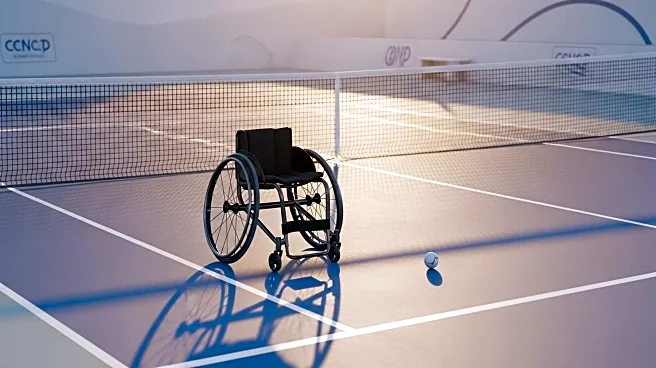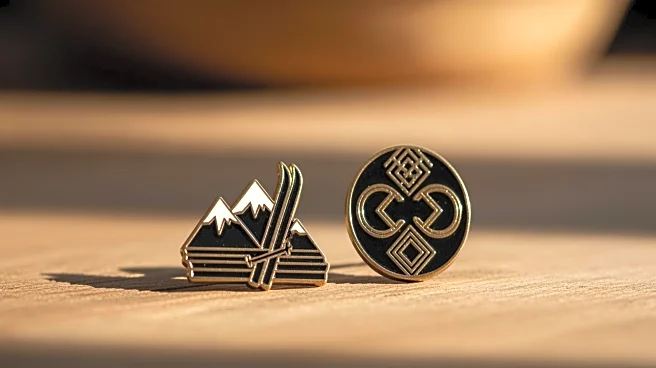What's Happening?
Ruben Harris, an 18-year-old wheelchair tennis player from Canterbury, has expressed his ambition to compete in the 2028 Paralympics following his recent victory at the US Open Junior Wheelchair Doubles. Harris, alongside his doubles partner Maximilian Taucher, secured their second grand slam title, having previously won the French Open last year. Harris, who was born with club feet and underwent surgery at nine that led to complications, opted for amputation to improve his mobility. He now competes at the highest level in wheelchair tennis and aims to emulate the success of British players Alfie Hewett and Gordon Smart, who have won 23 grand slams.
Why It's Important?
Harris's aspirations highlight the challenges and opportunities within wheelchair tennis, a sport that receives less publicity and financial support compared to able-bodied tennis. The prize money for wheelchair tennis is significantly lower, with the US Open offering $1.6 million compared to over $31 million for men's singles. Harris's journey underscores the need for greater recognition and support for athletes with disabilities, as well as the potential for inspiring others facing similar challenges. His success could contribute to increased visibility and investment in wheelchair sports, promoting inclusivity and diversity in athletics.
What's Next?
Harris will need to maintain consistent performance to achieve his Paralympic dreams and make a sustainable career in wheelchair tennis. This involves competing in more tournaments and potentially increasing his visibility to attract sponsorships and support. As he continues to develop his skills, Harris may also become a role model for aspiring athletes with disabilities, encouraging them to pursue sports despite challenges. The broader sports community may respond by advocating for increased prize money and media coverage for wheelchair tennis, fostering a more equitable environment.
Beyond the Headlines
The story of Ruben Harris also touches on the ethical and cultural dimensions of sports inclusivity. It raises questions about the allocation of resources and media attention between able-bodied and disabled athletes. Harris's journey could spark discussions on how sports organizations and sponsors can better support athletes with disabilities, ensuring they have equal opportunities to succeed. Additionally, his success may influence societal perceptions of disability, promoting a narrative of empowerment and capability rather than limitation.









